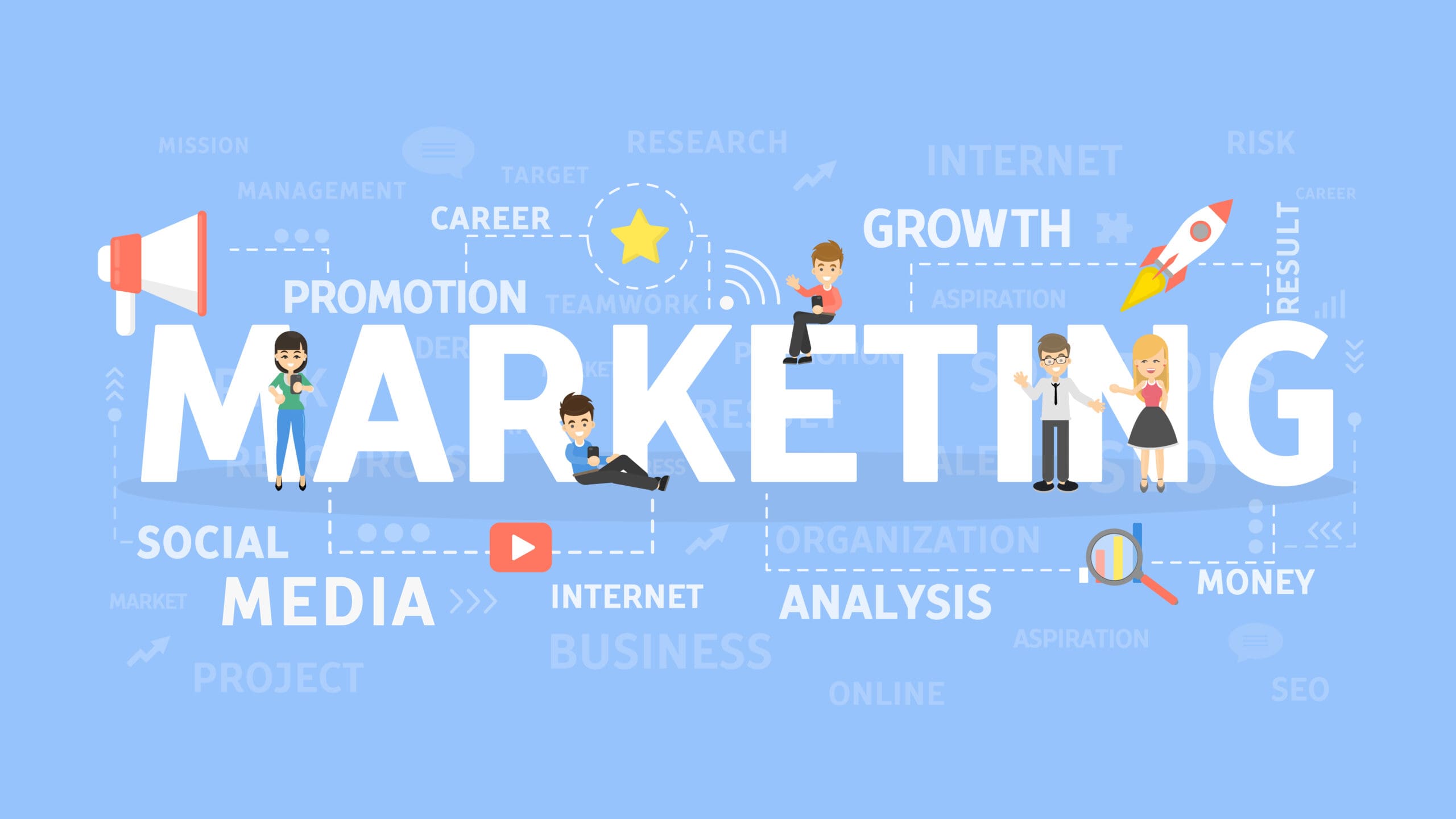Table of Contents
Hey there! If you’re running a business—whether you’re a solopreneur, a small business owner, or even managing a big brand—there’s one thing we can all agree on: marketing is the backbone of success. It’s not just about promoting a product or service; it’s about creating meaningful connections with your audience and driving growth.
At Wonkrew, the best digital marketing agency in Chennai, we’ve worked with businesses of all sizes, and trust us when we say marketing can make or break your brand strategy. In this blog, we’ll discuss the 10 importance of marketing and how it shapes a brand’s success story. Whether you’re new to the game or looking to up your strategy, stick around—we promise to keep it simple, practical, and conversational.
What is Marketing?
Marketing is the process of promoting, selling, and distributing a product or service to a target audience. At its core, marketing connects businesses with potential customers by identifying their needs, delivering solutions, and creating value.
But it’s not just about selling. Marketing encompasses everything from understanding your audience, building trust, and communicating your brand’s message, to ensuring that customers feel confident in choosing your product or service.
The Core Elements of Marketing
To better understand what marketing is, let’s break it down into key components:
1. Understanding Your Audience
Marketing begins with knowing who your audience is. This involves:
- Researching their demographics (age, gender, location, etc.).
- Understanding their preferences, challenges, and needs.
- Building a clear picture of how your product or service fits into their lives.
2. Creating a Brand Identity
Your brand is more than your logo or tagline—it’s how people perceive your business. Marketing shapes this identity by:
- Defining your unique selling points (USPs).
- Creating a consistent tone and visual style.
- Building trust and credibility through storytelling.
3. Developing a Strategy
A good marketing strategy answers questions like:
- Who are we targeting?
- What problem are we solving?
- Which platforms or channels should we use to reach our audience?
4. Delivering Value
Marketing isn’t just about pushing products—it’s about offering solutions. It could be:
- Educating your audience through blogs or videos.
- Entertaining them through engaging social media content.
- Providing resources that make their lives easier.
5. Driving Action
The ultimate goal of marketing is to inspire action—whether it’s making a purchase, signing up for a newsletter, or visiting your website. This is where your calls-to-action (CTAs) come into play.
10 Importance of Marketing: How It Shapes a Successful Brand Strategy
Let’s dive deeper into the importance of marketing and explore the essentials you need to know when marketing for your brand. Whether you’re just starting out or looking to refine your approach, understanding marketing fundamentals will make all the difference in your brand’s success.
1. Understanding Customer Needs
The importance of marketing starts with understanding your audience. Why? Because if you don’t know who you’re talking to, you’re essentially shooting in the dark. Marketing helps you gather insights through research and analysis, so you can identify what your customers want, need, and expect.
For example, let’s say you’re launching a snack brand. Marketing research can tell you if your target audience prefers gluten-free options or something indulgent like chocolate-covered nuts.
Effective marketing helps in shaping products that customers genuinely love. It’s like crafting a message for someone you truly understand—personal, precise, and powerful.
For example, Netflix
Netflix studies what people watch and uses that information to suggest shows you’ll like. This is how they create hits like Stranger Things that match what people enjoy watching.
2. Building Brand Awareness
What’s the point of having a fantastic product if no one knows it exists? One of the key reasons we explain the importance of marketing is its role in getting your brand noticed. Whether you’re using social media ads, email campaigns, or influencer collaborations, marketing is your megaphone to the world.
For small businesses, a well-planned Instagram campaign can do wonders. For big brands, consistent advertising ensures they remain top of mind. Either way, brand awareness is non-negotiable.
Example: Nike
Nike’s “Just Do It” ads with famous athletes like Serena Williams make sure everyone knows their brand. These campaigns inspire people and keep Nike in the spotlight.
3. Creating a Unique Brand Identity
Have you ever thought about what makes your brand different? Marketing helps you define that unique identity. It’s not just about logos and colours; it’s about the story you tell and the emotions you evoke.
For instance, Apple’s marketing doesn’t just sell devices—it sells creativity, innovation, and simplicity. When done right, marketing gives your brand a personality people can connect with.
4. Driving Sales and Revenue
Let’s be honest. We all want better sales and more revenue. And guess what? Marketing is the bridge that connects you to your goals. A strong marketing strategy ensures you’re not just attracting leads but converting them into loyal customers.
Whether it’s through compelling ad copy, irresistible offers, or a killer website experience, the role of marketing is to keep your sales pipeline buzzing.
Example: Amazon
Amazon’s Prime Day gives big discounts, making people rush to shop. This brings in a lot of money and keeps customers coming back.
5. Fostering Customer Loyalty
Marketing isn’t just about acquisition—it’s also about retention. Loyal customers are worth their weight in gold. They’re the ones who keep coming back, refer your brand to others, and even defend you online.
The importance of marketing management lies in creating strategies that nurture these relationships. Think loyalty programs, personalised emails, or even a simple “thank you” message. These little touches make a big difference.
Example: Starbucks
Starbucks has a rewards app where customers earn stars for free coffee. This keeps people buying from Starbucks and feeling appreciated.

6. Navigating Competitive Markets
Let’s face it, competition is fierce in almost every industry. That’s why we discuss the importance of marketing as a tool to stay ahead. Through competitive analysis, you can identify what others are doing and figure out how to do it better—or differently.
For example, if your competitor is dominating on Facebook, why not focus on LinkedIn or TikTok? Strategic marketing helps you carve out your niche, even in crowded markets.
Example: Spotify
Spotify stays ahead of competitors like Apple Music by creating features like personalised playlists and fun year-end summaries. This helps them stand out.
7. Adapting to Market Changes
The market never stays the same—it’s constantly evolving. Remember how the pandemic flipped everything to digital? Businesses that adapted quickly survived and even thrived.
The importance of marketing research lies in its ability to keep you informed about trends, customer preferences, and emerging opportunities. It’s like having a GPS for your business journey.
Example: Zoom
When COVID-19 made people work and learn from home, Zoom became very popular by offering free services for schools. Their quick response made them a global favourite.
8. Enhancing Customer Experience
In today’s world, customer experience is king. People don’t just buy products—they buy experiences. Marketing ensures every touchpoint, from your website to your customer service, delivers value.
For example, a simple chatbot on your website can answer FAQs instantly, leaving your customers impressed. Effective marketing helps in creating seamless, memorable interactions.
Example: Apple
Apple makes sure everything, from their stores to their phones, is easy and enjoyable to use. Their ads focus on how their products improve everyday life.
9. Expanding into New Markets
If you’ve ever thought about scaling your business globally, this is where the importance of international marketing comes into play. It’s about understanding cultural nuances, consumer behaviour, and market dynamics in new territories.
Take McD, for instance. McDonald’s has changed its menu in different countries. In India, they have McAloo Tikki burgers, while in Japan, they sell Teriyaki burgers. This helps them connect with local customers.
Also read: 8 Best Social Media Marketing Tools You Need – Maximise Engagement
10. Building Trust and Credibility
Last but definitely not least, marketing helps you build trust. Consistent branding, valuable content, and transparent communication all contribute to your credibility.
Think about brands like Amazon or Zomato. Their marketing reassures you about fast delivery, easy returns, or genuine reviews. That trust translates into long-term loyalty.
Example: Google
Google’s ads show how fast and safe their tools are, like Gmail or Google Drive. This makes people trust them and keep using their services.
Types of Marketing
Marketing isn’t a one-size-fits-all solution. Different strategies suit different goals and audiences. Here are some key types:
- Digital Marketing
Includes SEO, social media, email marketing, and PPC ads. It’s all about leveraging online platforms to reach customers. - Content Marketing
Focuses on creating valuable content (like blogs, videos, or eBooks) to engage and educate your audience. - Service Marketing
Especially for service-based businesses, this involves building trust through customer experiences and communication. - International Marketing
Targets audiences in global markets, adapting campaigns to suit different cultural and regional preferences. - Traditional Marketing
Includes TV, radio, print ads, and billboards. Still effective in certain contexts.
Final Thoughts
So, there you have it—the 10 importance of marketing broken down in simple terms. Whether you’re brainstorming ideas for your startup or refining the strategy for a well-established brand, marketing is your best friend. It shapes how your audience sees you, how your products sell, and, ultimately, how successful you are.
At Wonkrew, we’ve seen firsthand how impactful a solid marketing strategy can be. If you’re feeling stuck or unsure where to start, reach out to us! We’re here to help you connect the dots and build a brand strategy that works.
Let’s keep this conversation going—what’s one marketing strategy that’s worked wonders for your business? Share it in the comments below!
Frequently Asked Questions (FAQ’s)
1. What is the importance of marketing?
Marketing drives brand awareness, builds customer trust, generates revenue, and fosters long-term relationships. It connects businesses with their audience by addressing needs and delivering value effectively.
2. What is the most important marketing?
The most important marketing depends on your goals, but digital marketing is crucial today, leveraging SEO, social media, and content to reach and engage audiences effectively.
3. What is the role of marketing?
Marketing connects businesses with customers by understanding their needs, creating demand, delivering solutions, and building brand loyalty, ensuring sustainable growth and a competitive edge.
4. Why is marketing necessary?
Marketing is necessary to inform, engage, and convert potential customers. It ensures your product or service reaches the right audience, builds trust, and drives business success.
5. What are the principles of marketing?
Marketing principles include customer focus, value creation, clear communication, targeting the right audience, building relationships, consistency, and adapting to market trends for sustainable success.

